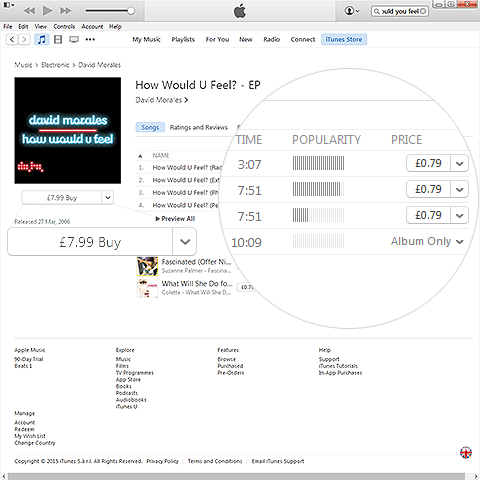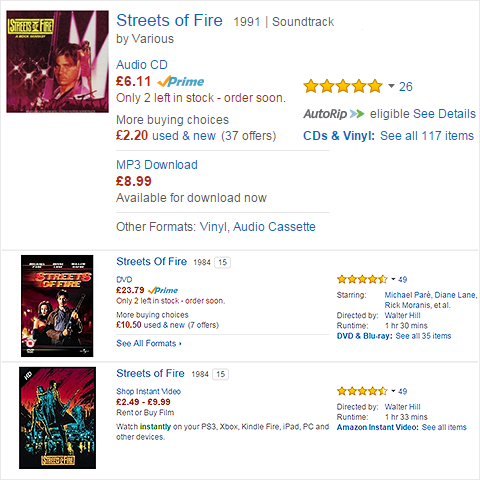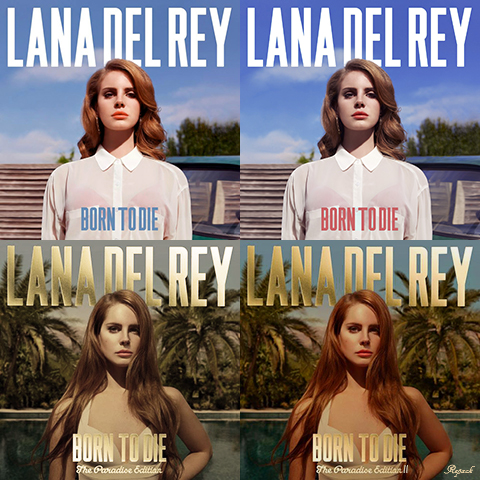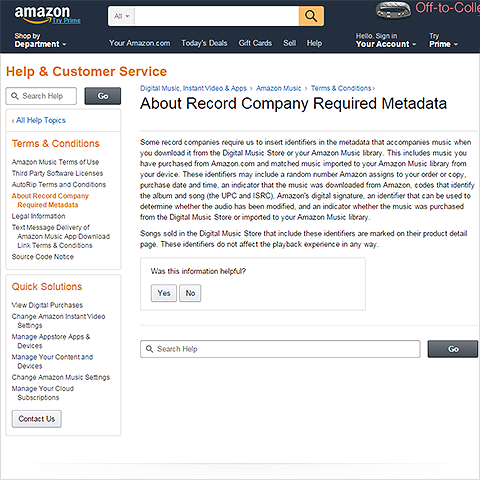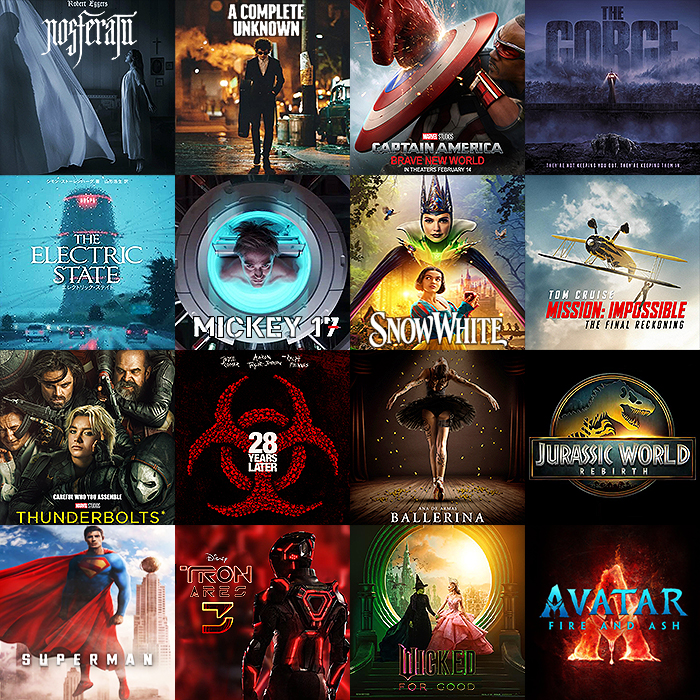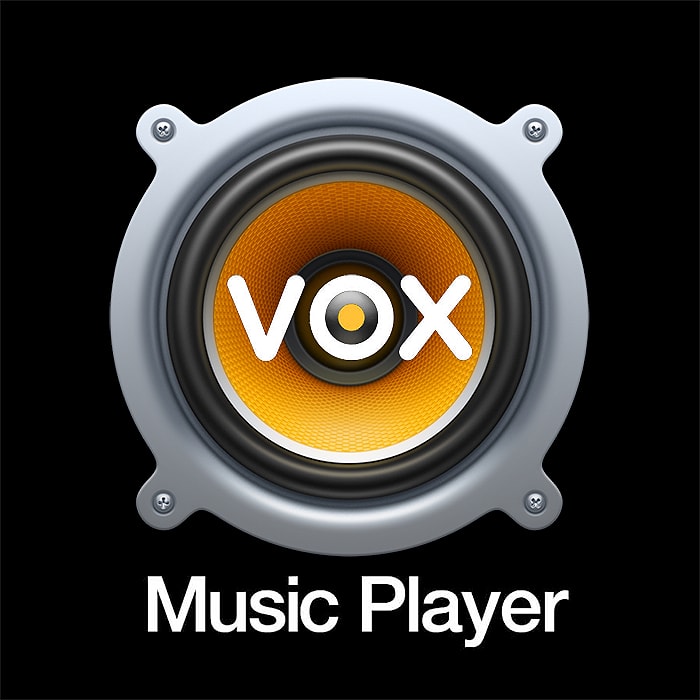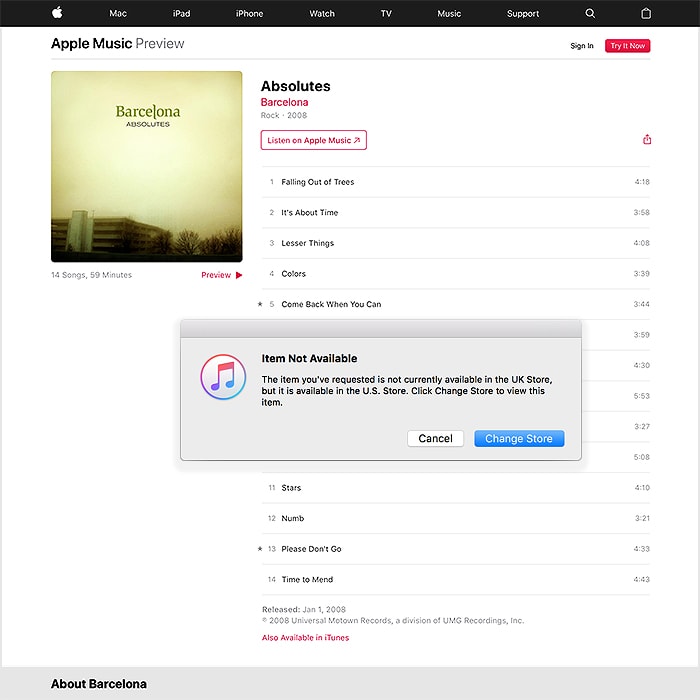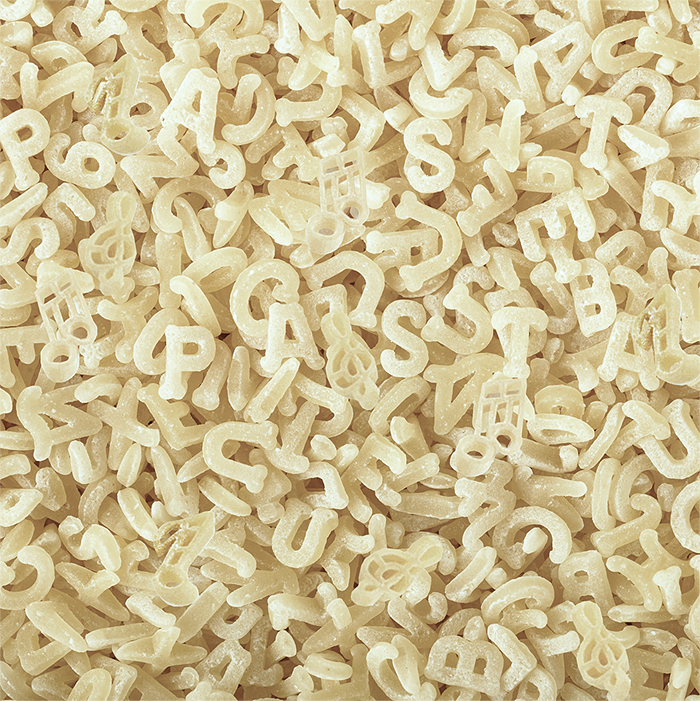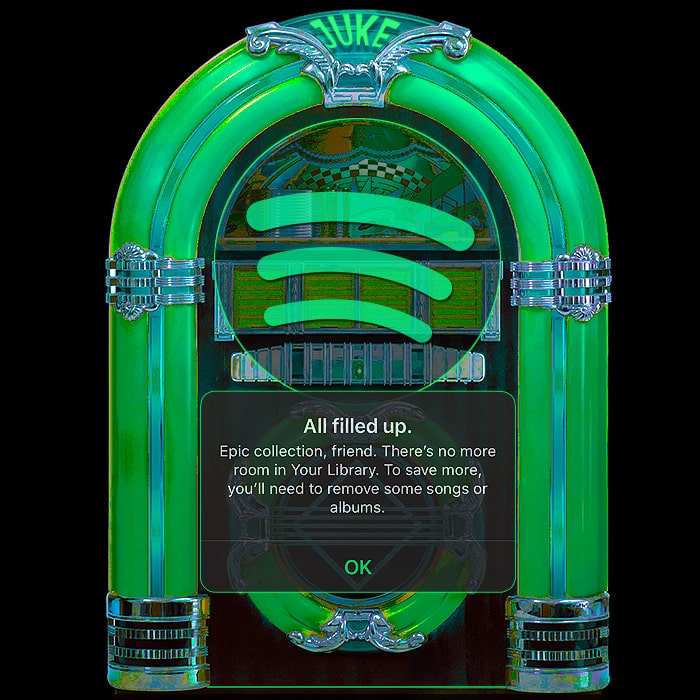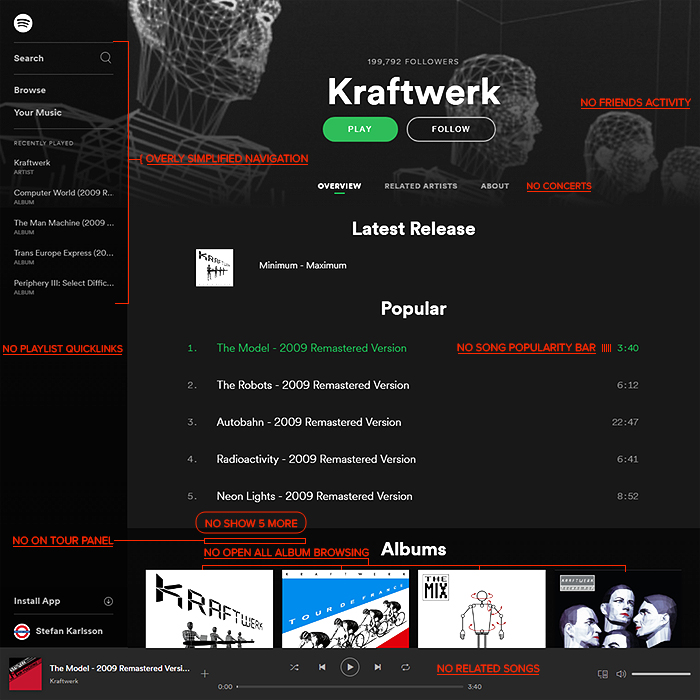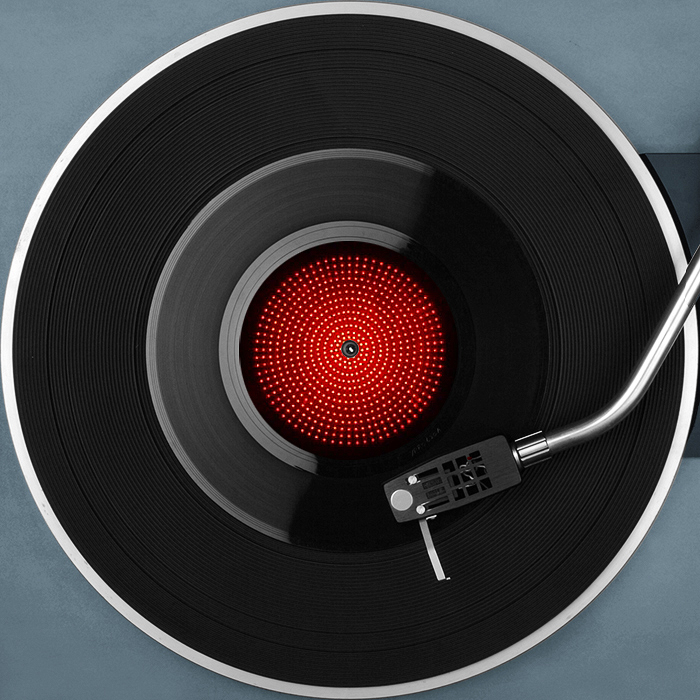Music Industry Madness - Caveat Emptor!

Let me start once more by stating that I am an extremely dedicated music fan, who consumes music globally and at high volumes on a weekly basis, and equally importantly pretty much totally legitimately (paid-for). I subscribe to both Spotify and Apple Music, occasionally using Deezer too, and buy from iTunes, Amazon, Beatport, Juno / Download, Traxsource, Bandcamp, 7 Digital, Phonica, Sister Ray, Rough Trade, Discogs and even HMV. In short, I am a very good customer, upper echelon and ongoing supporter of the music industry at large for 35 odd years - first proper record purchased incididentally, was the Pale Shelter 7" by Tears for Fears.
It is obvious to all bar a few music industry execs that music is a truly universal and adaptable commodity, art-form and experience. Very varied and different peoples from all the world’s 196 countries formalised and otherwise readily cross territorial boundaries in search of listening pleasures. The earliest days of popular music saw listeners tuning in on ’the wireless’ to catch radio services broadcast from far outside their local territories. Next the Gramophone / vinyl records took off, then reel-to-reel and 4/8-track, then the compact cassette and CD, we’ll skip over the MiniDisc (even though I have a number of those too) and end up currently with today’s pre-eminent format - the very portable universal MP3s.
In the past, to satisfy my tastes, I imported records from far and wide - Italo Disco and House, Detroit Techno, Chicago House, New Jersey Garage, Belgian, Dutch and German Techno and French House to name a few categories. All of this was available to me, and still is to a large degree via the remaining record stores and modern music marketplaces like Discogs.
In some ways the current state of music has never been better - never has there been greater access to such a large variety of music - YouTube harbours an enormous musical library, and with Internet Radio and a variety of streaming services, the typical listener has pretty much unprecedented access to music. Yet within all of this, there are some significant peculiarities and some quite underhanded means being employed be the music industry.
We have lived through ’Home Taping is Killing Music’, ’Video Killed the Radio Star’, ’Napster is Killing Music’ and now ’Streaming / Downloads are Killing Music’. The industry sold us vinyl first, then encouraged us to upgrade to tape, then CDs, then MP3s, and some are now trying to persuade us that we need higher fidelity lossless formats with a hugely extended frequency ranges that the human ear is incapable of hearing. All the time actually the music industry has not died, I think you’ll find it still pretty robust, and still shifting billions of dollars. We the consumers believe we are buying the music, while the music industry sees it more as a limited, packaged format which they can upgrade every few years and force us to buy our collections all over again to maintain spurious legal legitimacy. I have purchased some albums on Vinyl, Tape, CD, MiniDisc and MP3 - 5 times over! As a consumer, the music industry has taken a lot of my money, and seeks to unfairly limit my enjoyment of this ’Music’ which I should be rights own for my private listening pleasure - I believe I am buying the music, where the music industry believes I am just buying a format and a very playback-specific recording!
At the start of the industry, music was almost wholly a performance art, then the 60’s to the 80’s saw the rise of the ’Recording Artists’ who made more from music sales than performance. Currently it is shifting slightly more towards performance again, but the biggest stars - the Taylor Swifts of the world, still make a bundle on every format for both themselves and their record labels. Sure we are beyond the excesses and the heady days of the mid-to-late 80’s CD boom - and the world has changed much in the interim - socially and technologically. There is still a bundle of money to be made in music, the emphasis just shifts and evolves with the next phase of technological innovation. Artists need to change and evolve their approaches too - yet there have never been more opportunities for global exposure or total earnings potential for those that do succeed.
Mix-tapes were a big thing when I was growing up, and far from limiting my music consumption, they encouraged me to discover and buy ever more music. Much of music’s viability is in its promotional nature - from mix-tapes to YouTube to playlists - all these inspire music fans to make new discoveries, yet the music industry would have us believe that this has all been to their detriment. They have invented and fabricated imaginary enormous sums of losses - all of which has never been substantiated in the slightest. What is clear is that they are the masters at new money for old rope ...
In the meantime, the old-school music fan - like myself - who enjoys discovering and acquiring new music and curating personal playlists and larger collections - is marginalised by the still very outmoded and ridiculous, unfounded concerns / restrictions of the music industry majors - here are some of the many frustrations and dubious practices I encounter on a regular basis:
Song only available with whole album
Many a time you will want to purchase just a single track you are missing, but it is linked to a whole album - and you can only acquire it by buying the whole compilation - sometimes with 30 or more tracks you already have or have no wish to add to your collection. Music has changed immeasurable - it is now singles and playlist -led with albums way back in a distant third place. The music industry’s obsession to sell people an album is wholly out of touch with the modern reality. That said, I am still an album fan, and still regularly buy that format, yet would also like to be able to buy individual tracks too, in any combination, and not restricted or tied to the purchase of a large volume of unwanted tracks.
Temporary / Limited Ownership of Music
With many subtle yet complex DRMs still in place and ongoing digital media ownership legalities, it turns out that a lot of time you don’t actually physically own your musical content - it is most commonly a sort of extended lease with severe legal usage restrictions. It is often linked to the platform you consume it on or specific devices you play your music on. If something happens to those core platforms or you switch device, you may find it difficult to access much of what you thought you had already fully and legitimately acquired. Two UK music industry bodies - UK Music and BASCA have overturned via Hight Court Appeal, the recently introduced law which allowed consumers to rip CDs to MP3 for mobile playback / backup purposes. Those bodies claim that their musician members are losing £58 million of revenue per annum through this practice. An entirely spurious and made-up figure which some totally moronic high court judge still saw fit to support - meaning it is now illegal to rip from CD again - which millions of people do on a daily basis. So much music is still not available digitally, this is the only way to acquire much of it, and you can’t play it back on your device of choice? This is a total affront to consumer rights - the consumer rights ombudsman should issue a class action suit on behalf of the music consumer - these rulings are wholly out of touch with the reality of modern music consumption, and if anything are just going to put more people off buying CDs which will then most definitely result in lower revenues for the music industry - this is protectionism and profiteering wrapped up in total legal bullshit - everyone involved in this should be embarrassed by this facile attempt to curb legitimate consumer rights.
’Content not available in your Territory / Region!’
How is this still a thing in today’s cross-border global community? I am subscribed to all manner of newsfeeds, updates and alerts from all the artists I follow (several hundreds), and I pretty much know exactly when a new album is being released - anywhere in the world. The biggest stars - the Madonnas and Beyoncés of the world, know to release to all territories simultaneously or their music will just be pirated by fans in regions where the album has not yet launched. Yet so much music still suffers staggered releases, even between the two leading global markets - US and UK - sometimes one week’s delay, sometimes a month or more. I am a big fan of Scandinavian Electronica, and many of those releases don’t reach UK iTunes for up to a year?? Some tracks which have been out for several years are only available in certain territories still - for instance Peter Rauhofer’s Breathless Remix of Destiny’s Child’s ’Lose My Breath’. You get the search result on Google, but when you go to Beatport you see the above alert - totally unacceptable in this day and age. I also suffered not long ago by buying the Blu-ray of Swedish House Mafia’s epic concert documentary ’Leave The World Behind’ - it was listed as ’All Regions’ but turned out to be region-locked to America - as if SHM don’t have a global audience - they broke first in the UK! The music industry should be rewarding loyal fans, not be seeking to marginalise them all the time with moronic territory restrictions.
Albums charged by accumulated track totals
The typical album on iTunes etc. retails for between £7.99 and £9.99. Tracks are usually charged between £0.79 and £0.99 (mostly the latter) - and you usually get an accumulative discount when you buy the whole album - i.e. the typical 10-12 tracks retailing at £7.99. Yet there are several times too, through some setup glitch or deliberate policy, where you find yourself being charged for an album - as an accumulated total of all the individual tracks - meaning there is no advantage in purchasing all the songs in a group. This is a classic case of when the CD version can be as much as 50% cheaper!
Lower Priced CDs
You can often buy a CD album (with include rip from Amazon) for a lower price than the MP3 album - makes no sense at all that a higher quality packaged recording with greater material costs and included MP3s retails at the lower price point - it is quite evident that many MP3 albums are overpriced. Also this is being sold with the added bonus of the CD rip - does that mean Amazon is flaunting the new copyright laws. You still get commodity music and video appearing in bargain bins of stores for very little amounts - how does all that factor in with the supposed real value of music the music industry is so keen to harp on about?
Platform Stratification
Artists choosing not to have their recordings on Spotify and limiting them to specific platforms. Most likely end result is that desperate fans simply download tracks for free from illicit sites - cutting out any level of remuneration / royalty for that music. Sure the royalties on Spotify aren’t huge, but then Spotify is very much this generations radio, which in the USA for many years relied on payola mechanics where labels actually paid to promote their acts on those platforms. Streaming is certainly not killing music, it is maintaining artist exposure and discoverability, and while for some it might never end up a big earner, it is just one of the many current revenue streams available, and artists can and should distribute their music through as many platforms as possible. Far better a regulated and some-degree rewarded music playback system, than illegal torrents and file-shares which yield no revenues to the artists.
Multiple Variations of Same Album
As a fan you are first to rush to buy an artist’s new album which now typically comes in ’standard’ and ’deluxe’ (extra track) varieties, then a few months later the album is out again as an ’extended’ or ’limited’ version, and still a few months later you get the ’ultimate’ version with yet another different selection of tracks, remixes, demos and re-recordings. Those that buy the first album end up paying almost triple rates to acquire everything, while the latecomers get a Brucie bonus version often at knock-down rates. This is tantamount to profiteering and an abuse of the fans’ good will.
The Recorded Music Format Debacle
As I’ve stated previously, we the music consumers believe we are purchasing the actual recording - the music itself - whether vinyl, tape, CD or MP3. Yet the music industry would have us believe that no, it is not the music we are purchasing but the actual recording format, and if we want to use our music on different playback devices, we need to purchase the same recordings over-and-over again in all the different formats and for each playback occasion. It is time the consumer ombudsman stepped in and backed up the faithful music consumer to ensure that their music purchases are properly safe-guarded and fit-for-purpose. The very nature of the digital age means you should take backups etc. as files can relatively easily become corrupted. Physical formats degrade with time, rendering the music recording often unusable after a certain amount of time. The ridiculous terms which the music industry is still trying to force will only push more people to streaming, meaning less physical music sales and lower proportional revenues for the music industry - wholly idiotic as I have stated several times in this piece.
Record Companies’ Required Metadata to track identity of downloader
Unique identifiers and trackers are inserted into MP3 metadata as required by several of the major record labels. This is supposed to be a counter-measure for piracy, but is actually a significant invasion of privacy. Imagine buying a vinyl album and discovering a tracking device inside the sleeve when you open up the album at home. Ironically it is almost always the legit customer / consumer that is punished by the industry. A classic example are the ’FACT’ ads that turn up on many DVD’s and Blu-rays warning about the perils of Piracy / Copyright Theft - when the only ones that see those ads are the ones that bought their content legitimately - torrent versions come minus all ads and notices. Legally speaking both Piracy and Copyright Theft are technically incorrect - legally this is ’Copyright Infringement’ as often you can’t fully or properly own that digital media.
Too much music not yet Digitised
I’m harping on about the often ridiculous limits imposed on digital music format, but equally frustrating for older music fans is just how vast a quantity of music still is not available in any digital format. Record labels are not properly digitising their archives - they could do similar work to what was done on the James Bond films - all digitally cleaned up and finessed. How about reaching back into those archives and making some of the older music available for this mobile generation. You don’t have to go too far back to find the shortfall either. I find myself having to rip across numerous of my 80’s and 90’s vinyl 12"s as they simply don’t exist digitally yet. Occasionally YouTube and SoundCloud can save me from the laborious task of real-time conversion from analogue formats. Yet legally speaking, I am skirting the fringes of music playback law - even though I own those original recordings on vinyl and CD, the record companies would conspire to prevent me from deriving any practical enjoyment from them...

Did you find this content useful?
Thank you for your input
Thank you for your feedback
Upcoming and Former Events
Affino Innovation Briefing 2024
Webinar - Introduction to Affino's Expert AI Solutions - Session #2
Webinar - Introduction to Affino's Expert AI Solutions - Session #1
PPA Independent Publisher Conference and Awards 2023
Meetings:
Google Meet and Zoom
Venue:
Soho House, Soho Works +
Registered Office:
55 Bathurst Mews
London, UK
W2 2SB
© Affino 2024


